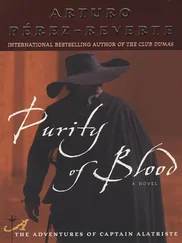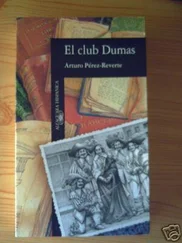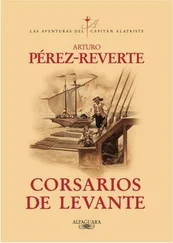ALSO BY ARTURO PÉREZ-REVERTE
The Flanders Panel
The Club Dumas
The Seville Communion
The Fencing Master
The Nautical Chart
The Queen of the South
Captain Alatriste
Purity of Blood
The Sun over Breda


The king’s gold / Arturo Pérez-Reverte ; translated from the Spanish by Margaret Jull Costa.
To Antonio Cardenal,
for ten years of friendship, movies, and fencing

What do we gain from it all? A little glory?
Some rich rewards, or merely boredom?
You’ll find out if you read our story.
GARCILASO DE LA VEGA
1. THE HANGED MEN OF CÁDIZ
The reason we are brought so low is that those who should honor us instead conspire against us. Once, it was enough merely to brandish the word “Spaniard” for all to tremble; now, for our sins, that reputation is almost lost.
I closed the book and looked where everyone else was looking. After several hours without a breath of wind, the Jesús Nazareno was finally heading into the bay, driven by the westerly breeze now filling the creaking mainsail. Grouped along the deck of the galleon, in the shadow of the great sails, soldiers and sailors alike were pointing at the corpses of the English, which either adorned the walls of Santa Catalina castle or hung from gallows erected on the shore, along the edge of the vineyards that face out to sea. They resembled bunches of grapes ripe for harvesting, except that these grapes had been harvested already.
“Curs,” growled Curro Garrote, spitting into the sea.
He had greasy, grimy skin, as did we all: soap and water were in scarce supply on board, and after the five-week voyage from Dunkirk via Lisbon, bringing home the soldiers from the war in Flanders, the lice were the size of chickpeas. Garrote bitterly stroked his left arm, rendered almost useless by the English at Terheyden, and gazed in satisfaction at the San Sebastián sandbank, where, opposite the chapel built next to the lighthouse, lay the smoking remains of a ship that the Earl of Leicester himself had ordered to be burned, with as many of his own dead on board as he could find, before reembarking on another ship and fleeing with those who had survived.
“They paid a heavy price,” someone said.
“And would have paid a still heavier one,” said Garrote, “if we’d gotten here in time.”
He would gladly have strung up some of those bunches of grapes himself. The English and the Dutch, as arrogant and full of themselves as ever, had attacked Cádiz the week before, with one hundred fifty warships and ten thousand men, determined to sack the city, set fire to our ships in the bay, and seize the treasure fleet that was due to arrive from Brazil and New Spain. In his play The Girl with the Pitcher, the great Lope de Vega began his famous sonnet thus: The Englishman bold, armed only with trickery, Thinking the lion of Spain asleep in his lair . . .
And that was precisely how the Earl of Leicester had arrived, the typical cunning, cruel, piratical Englishman—however much the people of that nation may hide behind privileges and hypocrisy. He disembarked a great many soldiers and succeeded in taking the Fort of Puntal. At the time, neither the young Charles I nor his minister Buckingham had forgiven the rebuff received when the former had wanted to marry a Spanish infanta, who kept him waiting around in Madrid for so long that he finally lost patience and returned to London with his tail between his legs. I’m referring to the episode, which I’m sure you’ll remember, when Captain Alatriste and Gualterio Malatesta came within an ace of putting a hole in the young king’s doublet. However, unlike the day thirty years before when Cádiz was plundered by the Earl of Essex, God chose otherwise this time: our men were armed and ready, the defense was hard-fought, and the soldiers of the Duque de Fernandina were joined by the inhabitants of Chiclana, Medina Sidonia, and Vejer, as well as by any infantrymen, horses, and old soldiers who happened to be at hand, and thus we Spanish gave the English a sound drubbing, and the English hindered our efforts only by spilling a great deal of their own blood. After much suffering and having advanced not one inch, Leicester hurriedly reembarked when he realized that what he could see hoving into view was not the treasure fleet but our galleons, six large ships and a few smaller vessels, Spanish and Portuguese—for, at the time, thanks to the great King Philip’s inheritance from his mother, Spain and Portugal shared both empire and enemies—each one equipped with good artillery, and carrying veterans coming home on leave and infantrymen from now disbanded regiments, all of them battle-hardened men from the war in Flanders. When our admiral was given the news in Lisbon, he had set off for Cádiz under full sail.
The heretics’ sails, however, were now nothing but tiny white dots on the horizon. We had passed them at a distance the previous evening, limping home after their failed attempt to repeat their good fortune of 1596, when all Cádiz burned and when they had plundered even the libraries. It’s amusing really how the English make such a fuss about the defeat of what they, with heavy irony, refer to as our Invincible Armada, and about Essex and so on, but they never mention the occasions on which they came off worst. Poor Spain may have been an empire in decline, with more than enough enemies eager to dip their bread in the sauce and mop up the gravy, but the old lion still had teeth and claws enough to go down fighting before its lifeless body was shared out amongst the crows and the merchants, whose Lutheran and Anglican duplicity—Devil take them—never seemed to have any problem combining their worship of a very indulgent God with piracy and profit, for, amongst heretics, being a thief had become one of the respected liberal arts. If one were to believe their chroniclers, we Spaniards made war and enslaved people purely out of pride, greed, and fanaticism, while those who murmured about us behind our backs, they, of course, plundered and trafficked and exterminated in the name of liberty, justice, and progress. But that, alas, is the way of the world. What the English left behind them on this occasion were thirty ships lost at Cádiz, many colors brought low, and a large number of dead on land—about a thousand, not counting the stragglers and drunks whom our men mercilessly hanged from the city walls and from the gallows erected in the vineyards. This time their plan blew up in their faces, the whoresons.
Beyond the forts and the vineyards we could see the city with its white houses and turrets tall as watchtowers. As we rounded the bastion of San Felipe, when the port finally came into view, we could already scent the earth of Spain the way donkeys can scent grass. A few salvos of cannon greeted us, and the bronze mouths protruding from our gunports offered a loud response. At the prow of the Jesús Nazareno, the sailors were preparing to drop anchor. And only when the men had scrambled up the yardarms to take in the sails, and the canvas was already flapping loose on the spars, did I put away my copy of Guzmán de Alfarache —bought by Captain Alatriste in Antwerp as reading matter for the voyage—and go to rejoin my master and his comrades on the forecastle. Almost everyone was excited and glad to be once more within reach of land, knowing that all the troubles of the voyage would soon be over: the danger of being hurled onto rocks by contrary winds, the stench of life belowdecks, the vomiting, the damp, the meager daily ration of rank water, the dried beans, and the worm-eaten ship’s biscuits. A soldier’s lot may be a wretched one on land, but it is far worse at sea. If God had intended man to live there, he would have given him fins, not hands and feet.
Читать дальше














